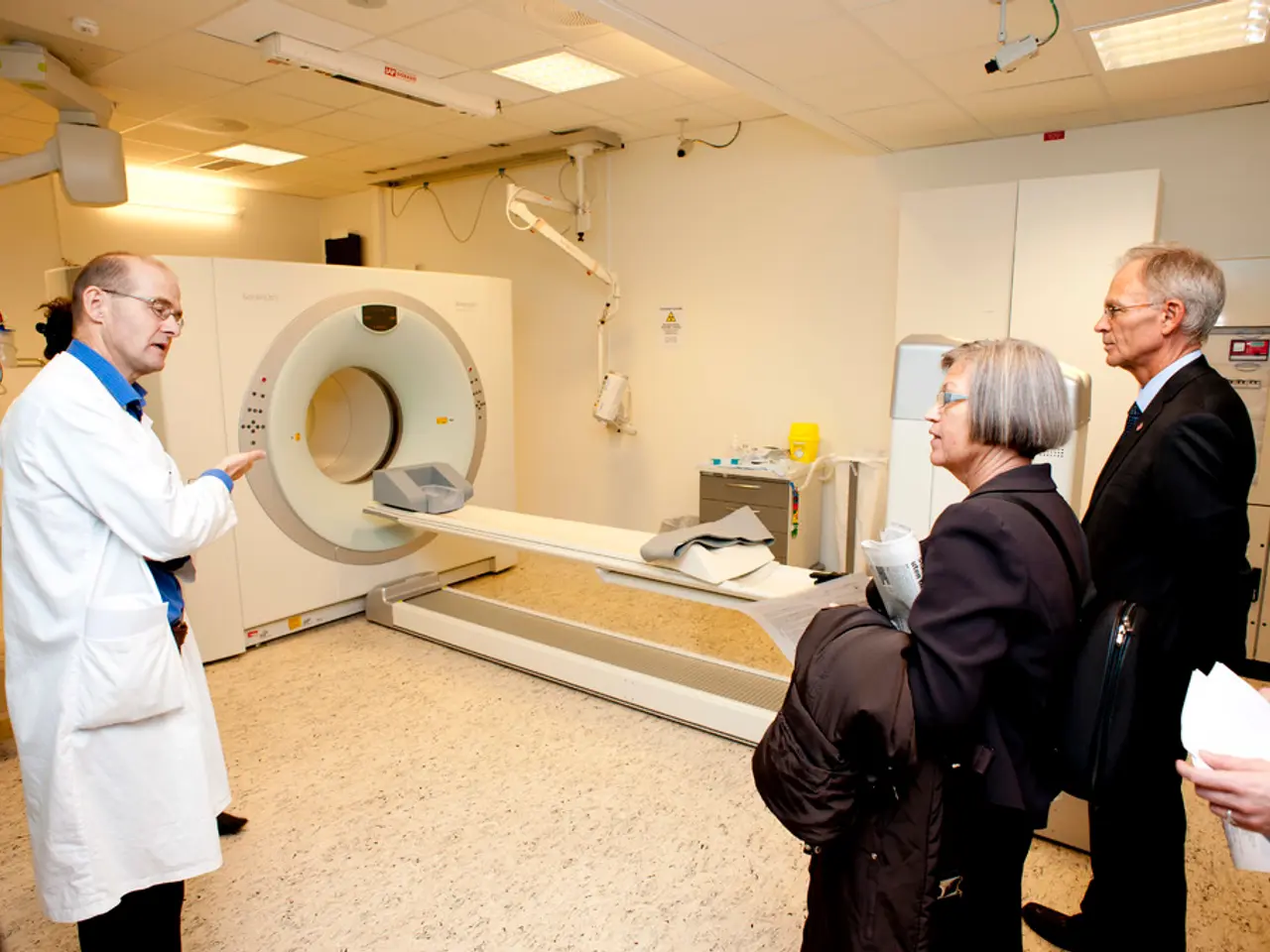Family Doctors Balance Preventative Care and Individualized Medicine
In the pursuit of maintaining good health, a proactive approach that combines prevention with personalized treatment is key. This approach can be made accessible and practical through family physicians.
Choosing the right family doctor is an important decision. Questions to consider include the office's accessibility, appointment flexibility, and expertise in managing chronic conditions. For instance, a 40-year-old with a family history of heart disease may undergo cholesterol and blood pressure monitoring earlier than usual.
Family physicians are equipped to treat many conditions themselves or connect patients with specialists as needed. Their knowledge of a patient's background allows for faster decisions in health emergencies, reducing emergency room visits. Seeing a family doctor first in health emergencies can significantly reduce the need for urgent care visits.
Preventive care is essential for maintaining good health, and family physicians excel in this area. They tailor preventive screenings to individual risk profiles, considering factors like age, lifestyle, genetics, and personal health history. This comprehensive approach to care ensures early identification and effective management of health risks.
Family physicians handle a wide range of healthcare needs, from pediatric vaccines to geriatric check-ups. Comfort during the first interaction with a family doctor is an essential factor in building trust and ensuring a productive long-term partnership.
The process of choosing a family doctor involves looking for a provider who is board certified, has patient-centered communication, and has access to modern tools like telehealth. Taking the initiative, such as scheduling a consultation, beginning with a wellness check, or researching family-focused care clinics, is key to improving one's health.
Trust with a family doctor deepens with intentional practices, leading to more accurate diagnoses, better adherence to treatments, and higher engagement from patients. Consistent care with a family doctor involves working hand-in-hand to fine-tune well-being, taking health notes, setting measurable goals, and involving family in care decisions when appropriate.
Waiting isn't an option when it comes to one's health. A mother's annual check-up being pushed can lead to serious and costly health issues in the future. A single point of contact for health records, referrals, and follow-ups reduces delays and miscommunications in care.
In conclusion, family physicians provide personalized preventive care and tailored treatment plans by thoroughly understanding each patient’s unique health history, risk factors, lifestyle, genetics, and family medical background. This approach ensures that healthcare is not one-size-fits-all, but rather tailored to the individual's specific needs, improving overall health outcomes.
- Technology in the field of telehealth allows for convenient access to family doctors, enhancing healthcare accessibility.
- The healthcare industry embraces science in developing therapies and treatments for various medical conditions, such as chronic kidney disease and type 2 diabetes.
- Prioritizing workplace-wellness initiatives can help manage complex chronic diseases effectively in the workforce.
- Eye health and hearing are crucial aspects of a patient's overall health, with regular check-ups necessary for early detection and management of potential issues.
- Mental health is an essential element of health and wellness, with family physicians equipped to provide support and resources for patients.
- Incorporating fitness and exercise into daily routines is beneficial for mens health, promoting longevity and disease prevention.
- Skin care plays a vital role in maintaining good health, with family physicians offering guidance for common skin conditions like psoriasis.
- Parenthood requires dedicated attention to womens health during pregnancy, childbirth, and postpartum care.
- A proactive approach to health and wellness involves mindful eating and ensuring proper nutrition for a healthy lifestyle.
- Hobbies like sports, such as football and baseball, contribute to overall health and well-being, promoting teamwork and exercise.
- Professional sports, including the NFL, MLB, NHL, and golf, rely heavily on medical care and sports analysis to minimize injuries and optimize performance.
- Sports-betting increases awareness of various sports events like the Masters, grand prix, and American football, while also presenting potential risks to mental health.
- The unpredictable weather can impact sports and outdoor activities, with weather forecasting crucial for athletes to plan effectively and safely.
- College sports, such as NCAA football, bring together coaches, trainers, and physicians to ensure athletes receive proper medical care and produce top athletic performance.
- In tennis, a deep understanding of the sport plays a significant role in improvements and precautions for eye health and respiratory conditions.
- Mixed martial arts demand a holistic approach to wellness, including fitness, mental health, and the appropriate use of protective gear.
- Various skin conditions can be treated effectively through medicare coverage, ensuring patients have access to critical care and resources.
- Family physicians play a vital role in primary care, making informed decisions about treatments based on the latest healthcare research and advancements.
- Incorporating health screenings and regular check-ups into lifestyle routines can help in early detection and management of various health concerns, leading to better overall health outcomes.
- Comprehensive care through family doctors helps in managing health issues related to aging, ensuring older adults have access to specialized services when needed.
- Effective communication and empathy are vital in fostering trust between family doctors and patients, ensuring accurate diagnoses and better adherence to treatments.
- Seeking guidance from a family physician or health professional regarding any doubts or concerns is essential for maintaining good health, promoting early intervention and proper treatment.




